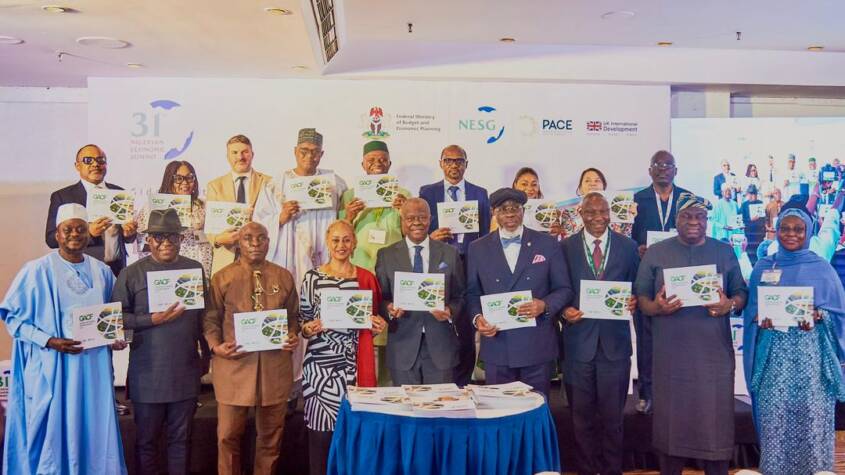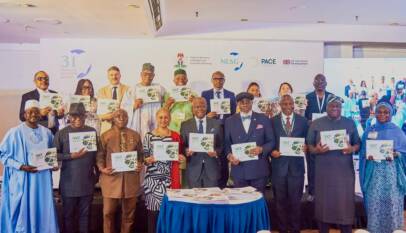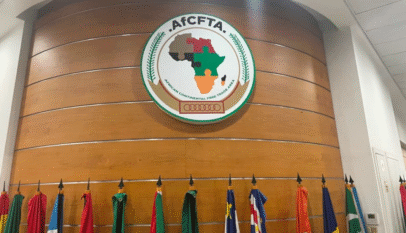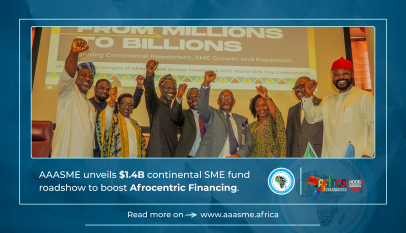PACE Guide: Unlocking Climate Finance for Sustainable Growth in Nigeria
Nigeria has taken a major step toward bridging its climate finance gap with the launch of the United Kingdom–supported Climate Finance Access Guide, a practical toolkit designed to unlock green capital for inclusive and sustainable growth.
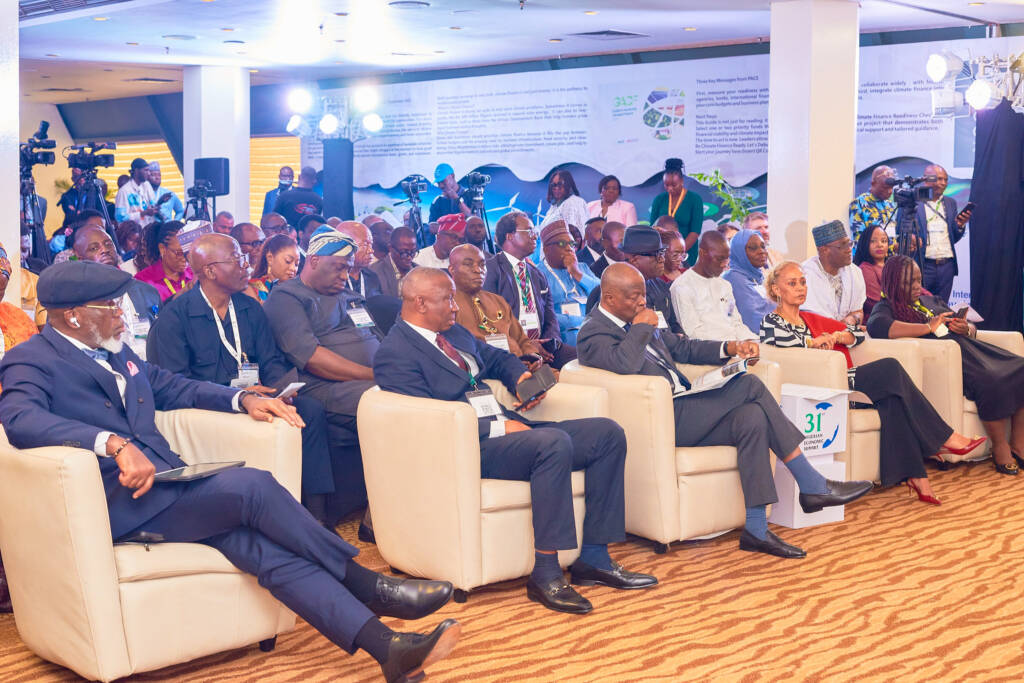
The launch event, which took place on the sidelines ofthe 31st Nigerian Economic Summit (NES#31) in Abuja, Nigeria, was themed “Unlocking Climate Finance for Sustainable Growth.” The launch of the PACE Guide stands as a defining milestone in Nigeria’s pursuit of a climate-resilient and inclusive development pathway.
Developed through a partnership between the UK Government’s Partnership for Agile Governance and Climate Engagement (PACE) programme and Nigeria’s Federal Ministry of Budget and Economic Planning (MBEP), the Guide reflects a shared commitment to advancing climate-responsive and sustainable growth.
It is designed to help state governments, private investors, and climate-smart enterprises navigate global climate finance, translating commitments into bankable projects and unlocking funding for renewable energy, climate-resilient infrastructure, and adaptation initiatives nationwide.
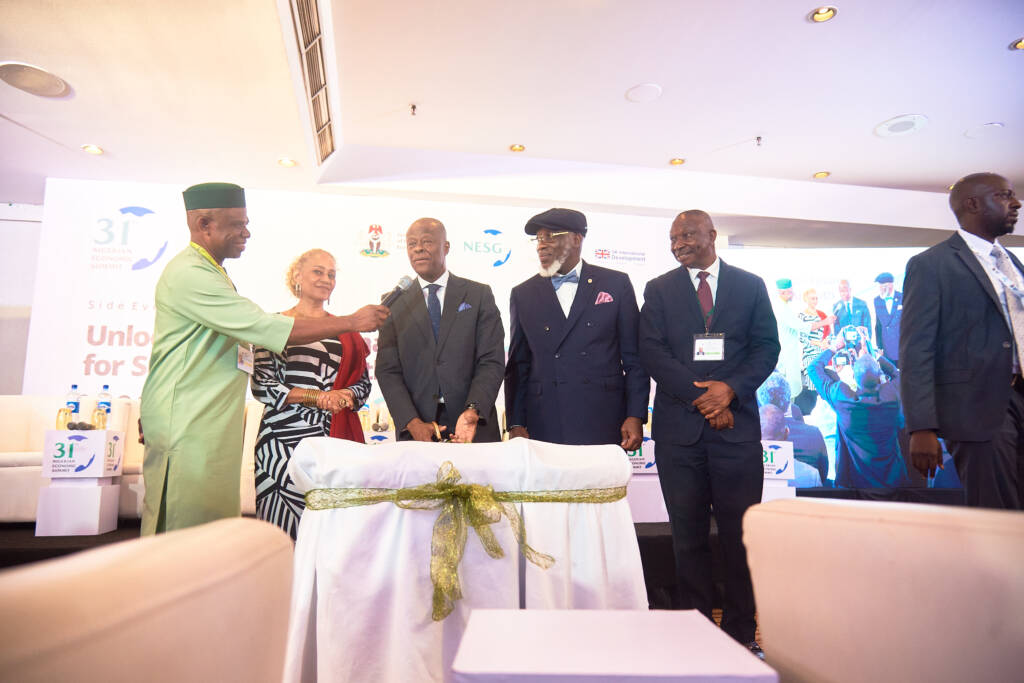
Bridging Nigeria’s Climate Finance Gap
Nigeria requires US$17.7 – US$27.2 billion annually through 2030 to meet its climate commitments under the Paris Agreement and its Nationally Determined Contributions (NDCs). Yet, the country loses over US$100 billion each year in economic value due to the combined effects of flooding, drought, desertification, and other climate-related disasters—losses that erode public revenue, threaten livelihoods, and slow economic growth.
These costs, detailed in Nigeria’s Climate Change Policy and Response Strategy and supported by analyses from the World Bank and the African Development Bank (AfDB), reflect the widespread damage to infrastructure, agriculture, and productivity caused by climate shocks.
Compounding this challenge are institutional weaknesses, limited capacity to design bankable projects, and investor concerns over policy and fiduciary risks—factors that have constrained Nigeria’s ability to access global climate finance.
Against this backdrop, the PACE Climate Finance Access Guide emerges as a timely and practical tool to help state governments, private sector actors, and businesses navigate international funding mechanisms and translate climate ambition into actionable, investment-ready projects.
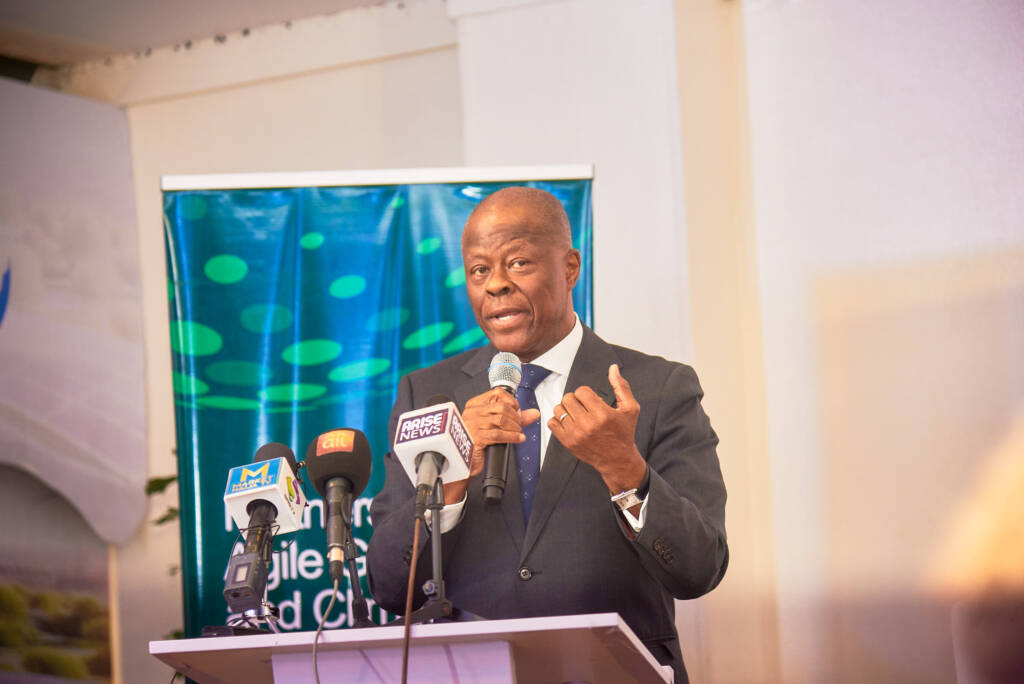
“Climate Finance is Not Charity; It is Smart Capital” – Wale Edun
Delivering the keynote address at the PACE Guide launch, Mr. Wale Edun, Minister of Finance and Coordinating Minister of the Economy, described climate finance as the single greatest opportunity for development-driven growth in this decade.
“The biggest opportunity of the moment is in climate. We do have an environment that is withdrawing from empathy, it is withdrawing from multilateralism, and help for developing countries is declining. The $100 billion annual promise for climate action has been unmet year after year. However, climate spending in 2024 reached $2 trillion; that’s where the money is. That’s why, at the Ministry of Finance, we established a Green Growth Office and a Green Growth Finance Coordinating Unit to align with global green financing trends,” Edun said.
The Minister stressed that climate change is no longer a distant reality—pointing to the devastating floods in Benue, recurring droughts in Sokoto, and rising sea levels in Lagos as visible reminders of its growing toll on livelihoods, infrastructure, and food security across Nigeria.
“We can build our infrastructure with foresight, diversify our energy systems with innovation, and create an economy that protects our people. Climate action is not a burden; it’s an investment in jobs, in health, in education, in security, and in the well-being of our children. Climate finance is not charity; it is smart capital directed towards infrastructure, innovation, technology, and people,” the Minister stated.
Edun outlined ongoing initiatives under the Green Growth Finance Coordinating Unit, including the expansion of renewable energy access and the launch of NDC 3.0—Nigeria’s most ambitious pledge to achieve net zero by 2060.
“Our focus is on ensuring transparency, coordination, and inclusiveness in the way climate finance is mobilized and used,” Edun said. “These are not abstract policies; they directly translate into better lives for Nigerians—electricity for our students and power for small businesses.”
The Green Growth Finance Coordinating Unit (GGFCU) is an initiative of the Federal Ministry of Finance that coordinates Nigeria’s green growth financing efforts. The unit serves as a central platform to align public and private sector investments with the country’s climate and sustainability goals.
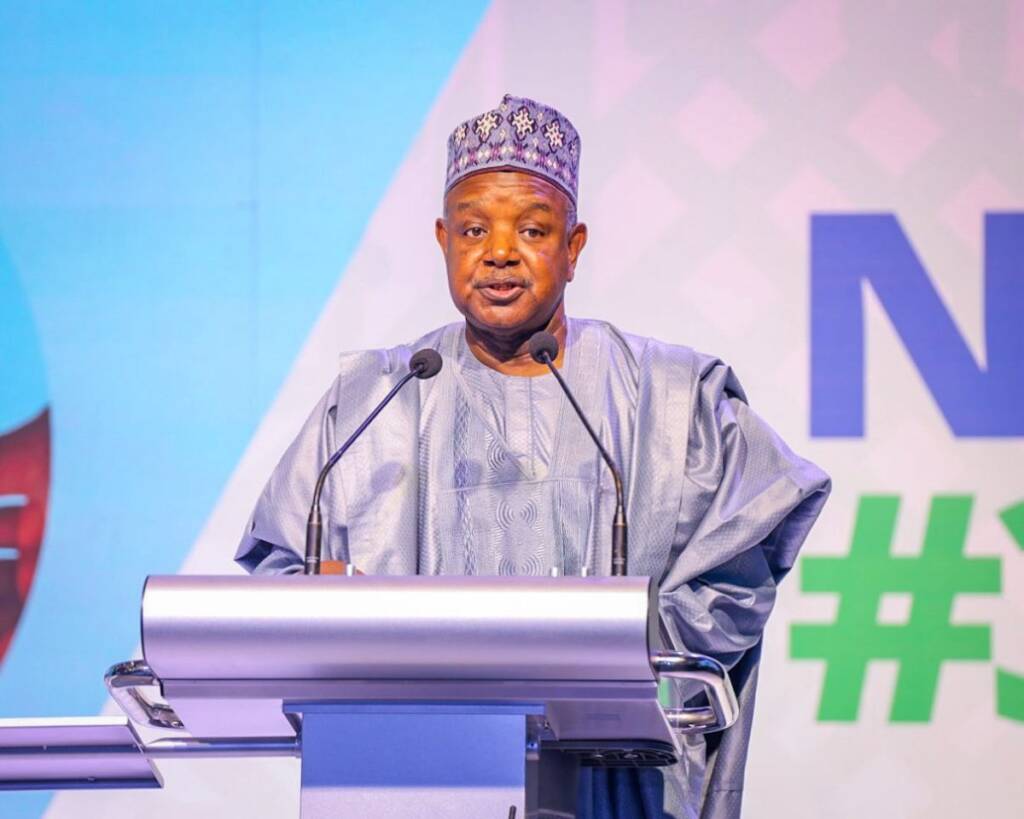
“From Climate Challenges to Fundable Projects” – Minister Bagudu
In his remarks, Minister of Budget and Economic Planning Abubakar Bagudu emphasized the need to transform Nigeria’s climate challenges into bankable, fundable projects.
“Moving from challenges to solutions requires specialized skills to ensure all the right ingredients are in place. We appreciate what the UK Government and other partners are doing, because this kind of collaboration helps bridge the gap between climate challenges and concrete, fundable projects,” he said.
Bagudu illustrated how climate impacts affect all segments of Nigeria, from oil-polluted waterways in the Niger Delta to water scarcity in the North.
“The agony of the Ogbia woman in the Niger Delta, whose freshwater sources are polluted by hydrocarbons, is no different from that of a Fulani woman in northern Nigeria who must walk seven to ten kilometers just to find water. These are all climate-related challenges that require collective and sustained action,” he noted.
The Minister said the Nigerian Government had also established a ₦21 billion Project Preparation Fund to support the design and development of climate-resilient projects. “Our goal is to generate projects that will attract the right financing to drive sustainable growth.”
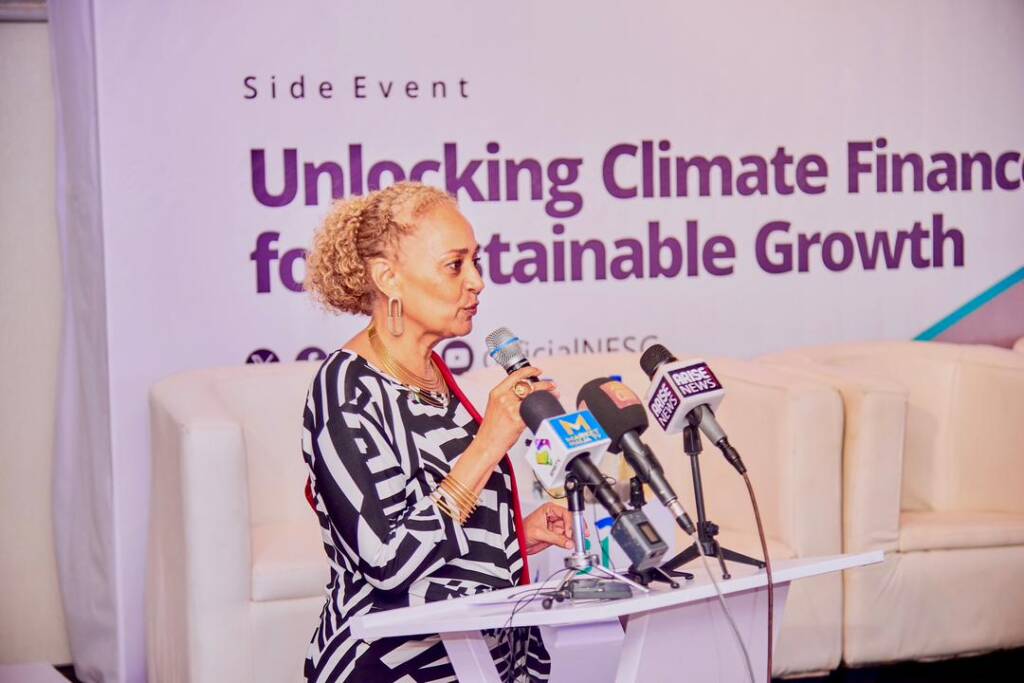
“UK-Nigeria Partnership Must Unlock Nigeria’s Green Growth” – UK Govt
Cynthia Rowe, Head of Development Cooperation at the British High Commission in Nigeria, reaffirmed the UK Government’s long-standing partnership with Nigeria in advancing climate resilience and inclusive development.
“I want to reaffirm the UK government’s enduring partnership with Nigeria—one rooted in shared ambition for inclusive economic growth, full climate resilience, and sustainable development,” Rowe said. “This partnership is not just about aid or technical assistance; it is about unlocking the full potential of Nigeria’s people, institutions, and delivering prosperity that is both green and inclusive.”
The British diplomat underscored Nigeria’s estimated $20 billion annual climate finance gap, noting that the gap represents “missed opportunities for clean energy, resilient agriculture, green jobs, and protecting vulnerable communities from devastating impacts.”
Rowe pointed to Jigawa and Kano as examples of where state-level investments could have transformative effects. “In Jigawa, where flooding is a tragic annual reality, and in Kano, where 3,000 tons of waste are generated daily, climate finance can turn this crises into an opportunity through waste-to-energy projects.”
Praising the PACE Guide as a practical tool, Rowe described it as “a catalyst connecting climate ambition with private sector dynamism, financial innovation, and scalable solutions. It empowers states and businesses to navigate the complex landscape of climate finance and turn plans into action. No single actor can do this alone—strategic collaboration is essential to mobilize finance at scale.”
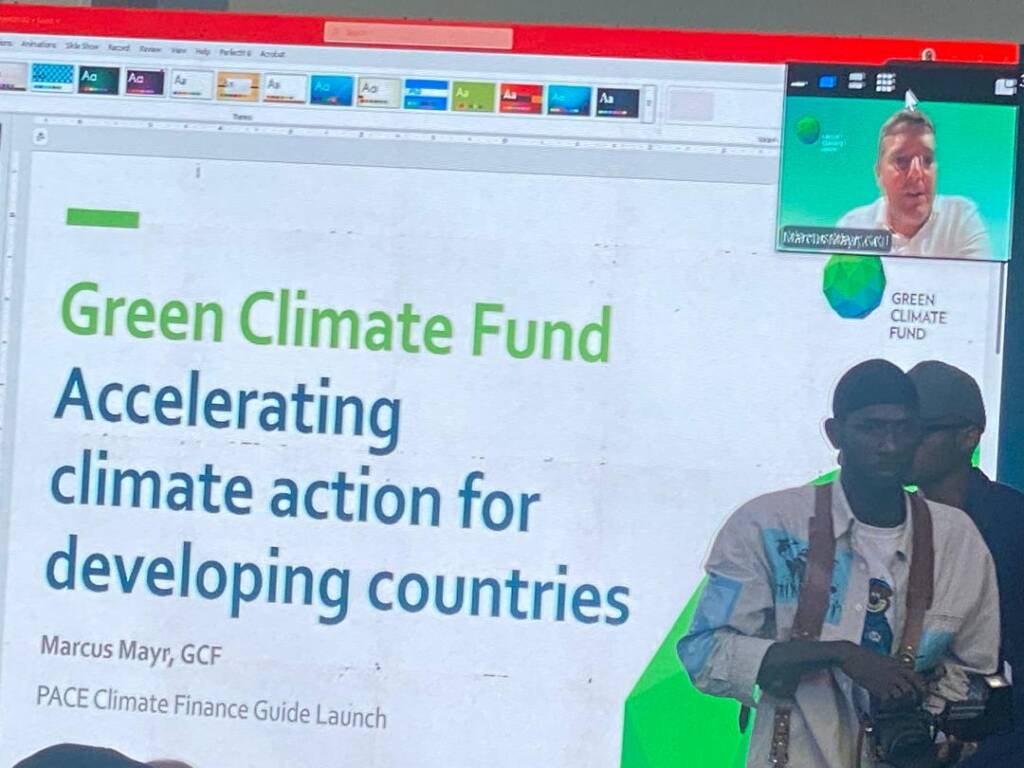
“We Stand Ready to Support Nigeria’s Climate Ambitions” – Green Climate Fund
Dr. Marcus Mayr, Senior Urban Sector Specialist at the Green Climate Fund (GCF), reaffirmed the Fund’s commitment to supporting Nigeria’s low-emission and climate-resilient transition.
“The Green Climate Fund is the largest in the world, having invested more than $15 billion in the last ten years. We stand ready to support Nigeria in implementing its newly launched NDC 3.0 and achieving its climate ambitions,” he said.
Mayr explained that GCF works closely with Nigeria’s National Council on Climate Change (NCCC) through its Readiness Programme, which strengthens institutional capacity to access climate finance directly.
“We are committed to unlocking private sector financing by deploying guarantees and instruments that reduce investment risk. This year and next, we are prioritizing better access through nationally accredited entities such as the Development Bank of Nigeria (DBN) and the Nigeria Sovereign Investment Authority (NSIA),” Mayr noted.
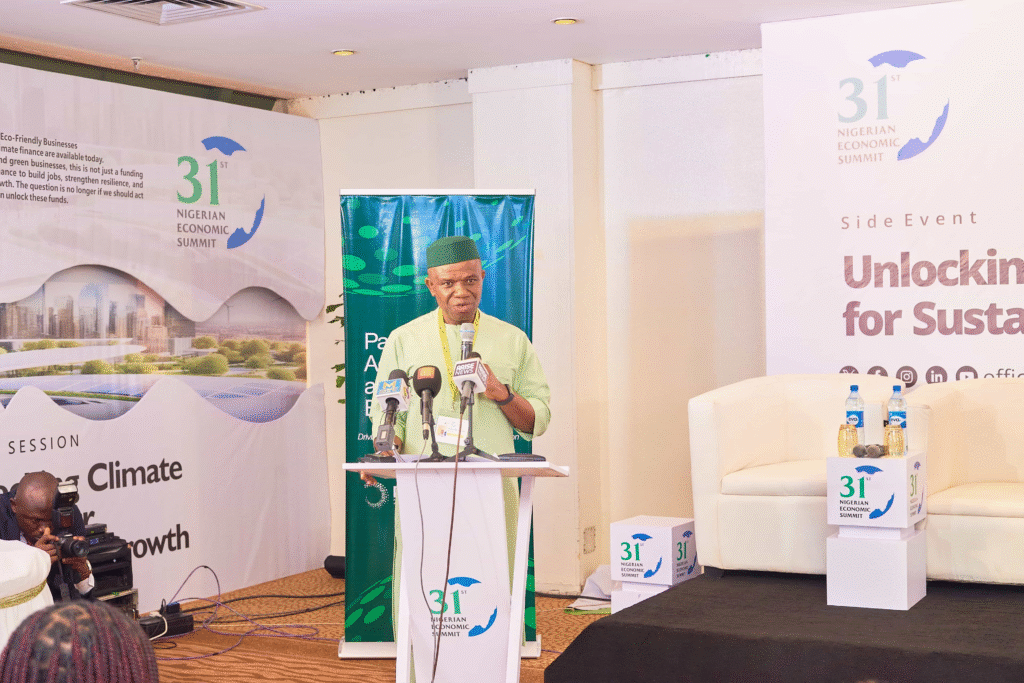
PACE Outlines Next Steps
Ifeanyi Ugwuoke, National Team Leader for PACE, said the launch of the Guide for Climate Finance Access marks a new phase of Nigeria’s green finance readiness. “The Guide prepares governments and private businesses to be investment-ready. The opportunity is tremendous. Today marks a pivotal step in ensuring that Nigeria can access the climate finance available,” he told African Newspage.
Ugwuoke explains that PACE will roll out the guide to all 36 Nigerian states, working with the Nigeria Governors’ Forum (NGF) and the National Economic Council (NEC) to ensure subnational buy-in and readiness.
“Project preparation is crucial. Investment-ready projects attract funding and create value chains—from renewable energy and sustainable waste management to flood and erosion control. These investments generate jobs, strengthen local economies, and support resilience against climate challenges,” Ugwuoke noted.
The PACE Team Lead says climate finance is not just about funding but about catalyzing inclusive economic growth. “The impact of climate investments is tangible. For example, desilting rivers reduces flash flooding, supports irrigation, and secures livelihoods. This is how climate finance translates directly into economic development and community resilience.”
The launch of the PACE Climate Finance Access Guide marks a pivotal milestone in Nigeria’s pursuit of a climate-resilient future. By equipping state governments and the private sector with practical tools to translate climate ambition into action, the Guide shifts Nigeria from policy intent to real green growth. If fully embraced by its intended beneficiaries, the PACE Guide has the potential to transform how Nigeria mobilizes and manages climate finance—turning its climate challenges into engines of inclusive growth, innovation, and long-term resilience.

